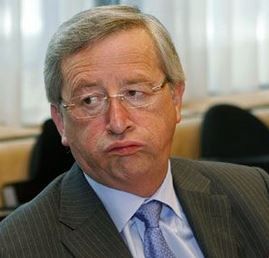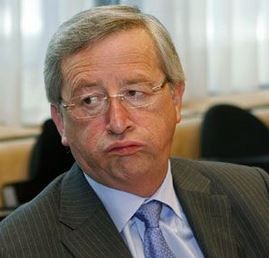Jean-Claude Juncker, President of the European Commission, should be investigated for alleged claims he encouraged companies avoid tax when he was Luxembourg’s leader, senior UK Tories say. In some cases, companies are said to have paid less than 1% corporate tax on their global income thanks to arrangements set up in Luxembourg when Mr. Juncker was Prime Minister.
Mr. Juncker flatly denies the allegations.
Iain Duncan Smith, UK Work and Pensions Secretary, urges for “complete transparency” from the European Commission, adding that it should not fear investigating its own people.
The European Commission must be held to account, said Grant Schapps, chairman of the British conservative party.
Following May’s EU elections, Mr. Juncker emerged as the leading candidate to take over as president, much to the horror of British Conservative lawmakers. Mr. Juncker is known for his desire to turn the EU into a federation of states.
Mr. Juncker is accused of being head of a country for eighteen years that granted deals to 340 multinationals to help them avoid paying tax. Mr. Juncker was Prime Minister of Luxembourg from 1995 to 2013.
According to the International Consortium of Investigative Journalists (ICIJ), FedeX, Ikea, Pepsi and 340 other multinational companies agreed on secret deals in Luxembourg which allowed them to dramatically reduce their global tax bills while maintaining hardly any presence in the tiny European duchy. Luxembourg has a population of just over half-a-million.
Mr. Juncker says he did nothing illegal during his 18 years as Prime Minister of Luxembourg.
These international corporations are alleged to have channeled hundreds of billions of dollars through Luxembourg and saved a huge fortune in taxes, says a review of almost 28,000 pages of leaked confidential documents, which were read through by a team of over 80 journalists from 26 nations.
The documents show that some companies have enjoyed corporate tax rates of less than 1% on the profits they channeled into Luxembourg.
According to ICIJ:
“The European Union and Luxembourg have been fighting for months over Luxembourg’s reluctance to turn over information about its tax rulings to the EU, which is investigating whether the country’s tax deals with Amazon and Fiat Finance violate European law. Luxembourg officials have supplied some information to the EU but have refused, EU officials say, to provide a larger set of documents relating to its tax rulings.”
If these allegations from a prestigious organization turn out to be true, how is it possible that Mr. Juncker, who was prime minister for 18 years, had not known anything about it?
Before being prime minister, Mr. Juncker was finance minister. He insists that all tax settlements while he was in charge were done according to national and international laws.
Mr. Juncker said on Wednesday “(there is) nothing in my past indicating that my ambition was to organise tax evasion in Europe”.
In an interview with the BBC, Mr. Duncan Smith said:
“This is a real moment for the European Union, for the commission, to show that it has the capacity and the determination to investigate its own. The trouble for the European Union historically has been that it circles the wagons around the people that are having the finger pointed at them and refuses to let any kind of change takes place. I think what is required from the European Commission is complete transparency.”


